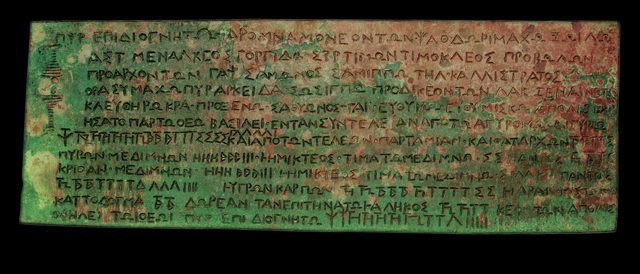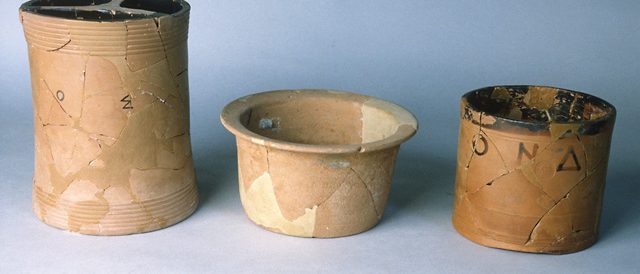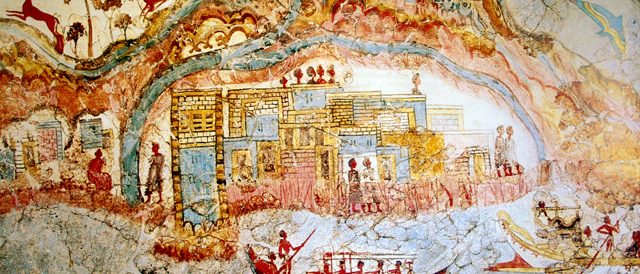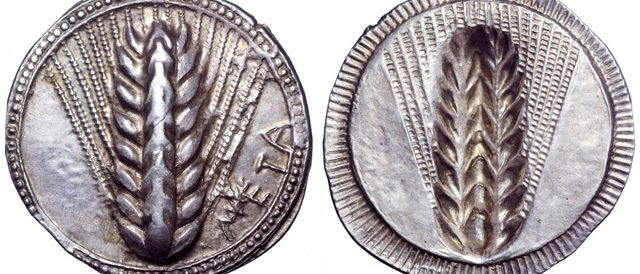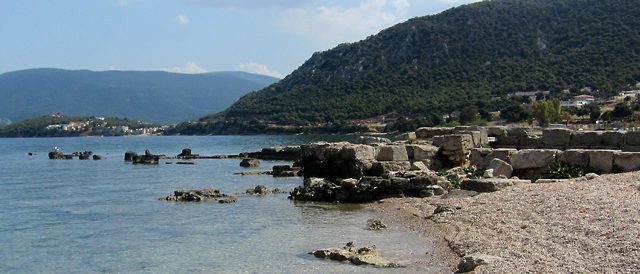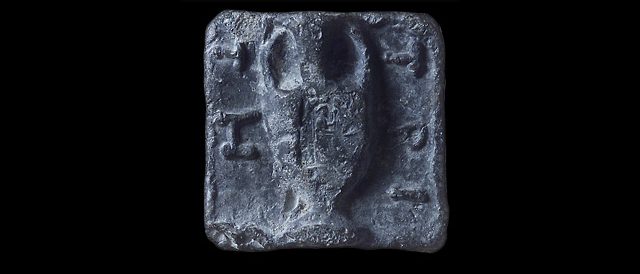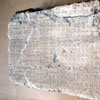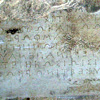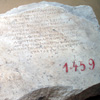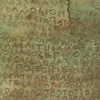The Project
Welcome to the homepage of GEI, an online, in-progress collection of Greek Inscriptions of Economic content, covering a period from the 6th to the 1st century BC.
In recent years the attention of modern scholars to ancient Greek economy has received impetus from a series of newly published documents of undisputed significance. The results have been both a deeply renewed examination of consolidated theoretical positions and at the same time a detailed analysis of specific aspects of the economic life of the polis.
Within this framework the GEI project aims at providing an online collection of epigraphic documents of primary importance for the comprehension of problems related to the economy of ancient Greece. Some of these documents were already included in the pioneering work of H.W. Pleket (Epigraphica I: Texts on the Economic History of the Greek World, Leiden 1964), many others, already known or newly discovered, have never been collected in a selection of this kind. The project covers a period from the archaic age to 1st century BC. [ ]
Inscriptions
The Scope
In recent years the attention of modern scholars to ancient Greek economy has received impetus from a series of newly published documents of undisputed significance. The results have been both a deeply renewed examination of consolidated theoretical positions and at the same time a detailed analysis of specific aspects of the economic life of the polis.
Within this framework the GEI project aims at providing an online collection of epigraphic documents of primary importance for the comprehension of problems related to the economy of ancient Greece. Some of these documents were already included in the pioneering work of H.W. Pleket (Epigraphica I: Texts on the Economic History of the Greek World, Leiden 1964), many others, already known or newly discovered, have never been collected in a selection of this kind. The project covers a period from the archaic age to 1st century BC.
The selected texts are intended as representative of the different areas of ancient Greek economy and their institutions and structures in the fields of public, private and sacred life. The areas taken into account will concern the following topics: exploitation and management of land, craftsmanship and manufacturing, exploitation of natural resources like mines, quarries, and forests, economic aspects related to war, the world of exchange – taking into consideration all its levels (local, regional and long-distance commerce) and all the people involved – finance and tax systems, and city lawmaking aiming at regulating different aspects of economic life (coins, weights and measures, trade of particular products, public officials involved, etc.).
For each document all technical information has been provided along with existing critical editions and selected bibliography. A critical apparatus, an English translation and a commentary focusing on historic and economic problems posed by the document follow the Greek text.
Texts are marked-up using the EpiDoc encoding conventions. The website has been developed by the Laboratorio di Storia Archeologia Epigrafia Tradizione dell’antico – SAET, Scuola Normale Superiore.
The corpus contains:Inscriptions
Indices
Search
Help
Editions of the inscriptions may be cited as GEI (e.g. GEI 5)

